
Copernical Team
AFRL conducts Swarm technology demonstration
 The Air Force Research Laboratory, or AFRL, conducted a demonstration, April 5, 2023, of its high-power microwave counter drone weapon, the Tactical High-power Operational Responder, or THOR, as it engaged a swarm of multiple targets at the Chestnut Test Site, Kirtland Air Force Base.
"The THOR team flew numerous drones at the THOR system to simulate a real-world swarm attack," said Adrian
The Air Force Research Laboratory, or AFRL, conducted a demonstration, April 5, 2023, of its high-power microwave counter drone weapon, the Tactical High-power Operational Responder, or THOR, as it engaged a swarm of multiple targets at the Chestnut Test Site, Kirtland Air Force Base.
"The THOR team flew numerous drones at the THOR system to simulate a real-world swarm attack," said Adrian A new tool for deforestation detection
 Every second, the planet loses a stretch of forest equivalent to a football field due to
logging, fires, insect infestation, disease, wind, drought, and other factors. In a recently published study, researchers from the U.S. Geological Survey Earth Resources Observation and Science (EROS) Center presented a comprehensive strategy to detect when and where forest disturbance happens at a lar
Every second, the planet loses a stretch of forest equivalent to a football field due to
logging, fires, insect infestation, disease, wind, drought, and other factors. In a recently published study, researchers from the U.S. Geological Survey Earth Resources Observation and Science (EROS) Center presented a comprehensive strategy to detect when and where forest disturbance happens at a lar Mapping the shallow seabed of the Mediterranean coast using satellite images
 Satellite-derived bathymetry continues to advance and improve rapidly. A recent scientific study has confirmed the effectiveness of a methodology developed to obtain bathymetric data from satellite images in the Western Mediterranean. The results of this research, published in the prestigious International Journal of Applied Earth Observation and Geoinformation, reaffirm the value of this tool f
Satellite-derived bathymetry continues to advance and improve rapidly. A recent scientific study has confirmed the effectiveness of a methodology developed to obtain bathymetric data from satellite images in the Western Mediterranean. The results of this research, published in the prestigious International Journal of Applied Earth Observation and Geoinformation, reaffirm the value of this tool f Military drones are swarming the skies of Ukraine and other conflicts
 Loud explosions rock the evening sky. Streaks of light appear like comets. Missiles rain down. Below, people scramble for cover. The injured are taken on stretchers - the dead, buried.
That is daily life in Ukraine, where pilotless vehicles known as drones litter the sky in an endless video gamelike - but actually very real - war with Russia.
Both Russia and Ukraine are using drones
Loud explosions rock the evening sky. Streaks of light appear like comets. Missiles rain down. Below, people scramble for cover. The injured are taken on stretchers - the dead, buried.
That is daily life in Ukraine, where pilotless vehicles known as drones litter the sky in an endless video gamelike - but actually very real - war with Russia.
Both Russia and Ukraine are using drones North Korea's Kim Jong Un says spy satellite ready for launch
 North Korean leader Kim Jong Un inspected the secretive regime's first completed military reconnaissance satellite and "approved the future action plan" for its launch, state-run media reported Wednesday.
Kim visited an aerospace facility on Tuesday and examined the satellite, which is "ready for loading after undergoing the final general assembly check and space environment test," accordi
North Korean leader Kim Jong Un inspected the secretive regime's first completed military reconnaissance satellite and "approved the future action plan" for its launch, state-run media reported Wednesday.
Kim visited an aerospace facility on Tuesday and examined the satellite, which is "ready for loading after undergoing the final general assembly check and space environment test," accordi Around the bed in 60 days
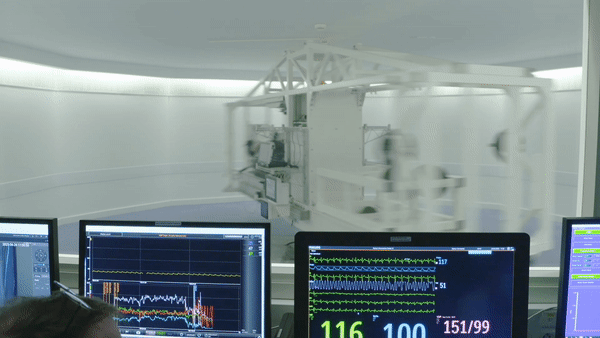
Lying in bed for a full 60 days – with one shoulder always touching the mattress – might sound like bliss, but add cycling, spinning and constant medical tests to the equation and it becomes a challenging experience for the sake of human space exploration.
ESA receives Space for Climate Protection Award
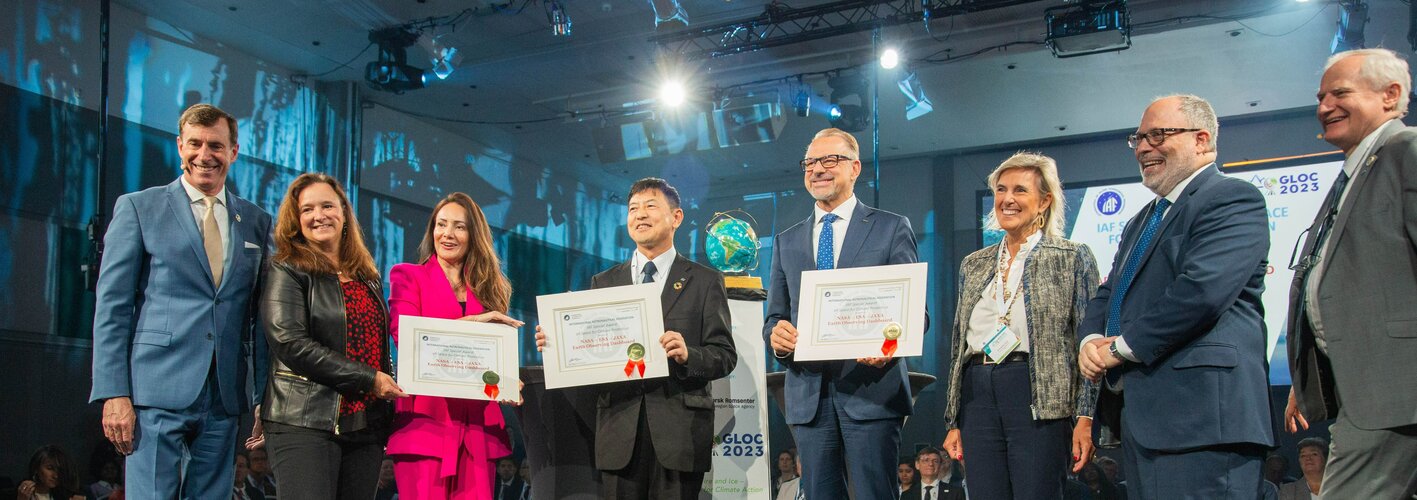
ESA has been presented the ‘Space for Climate Protection’ Special Award by the International Astronautical Federation during the Global Space Conference on Climate Change – currently taking place in Oslo, Norway.
Space station welcomes 2 Saudi visitors, including kingdom's 1st female astronaut
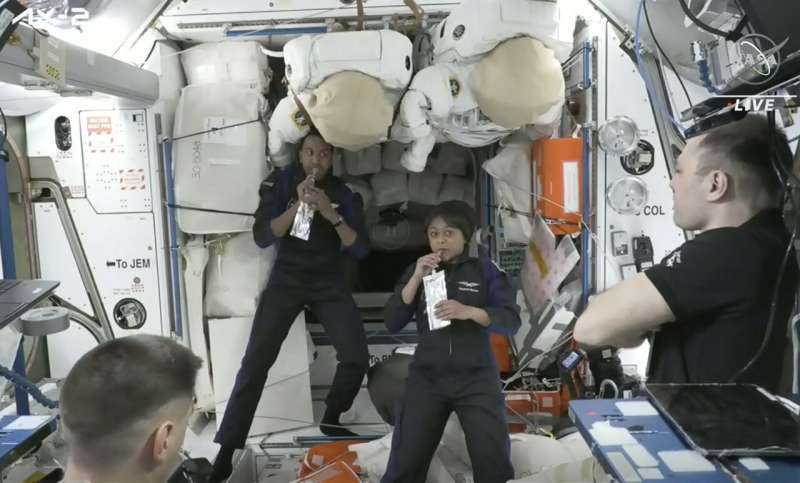
The International Space Station rolled out the welcome mat Monday for two Saudi visitors, including the kingdom's first female astronaut.
Watch now: Global Space Conference on Climate Change
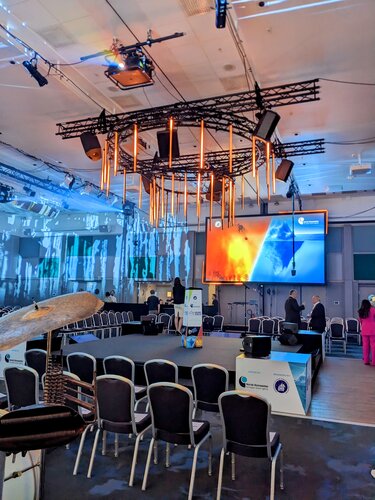
Watch now: Global Space Conference on Climate Change
Annual global ice loss simulated over Oslo
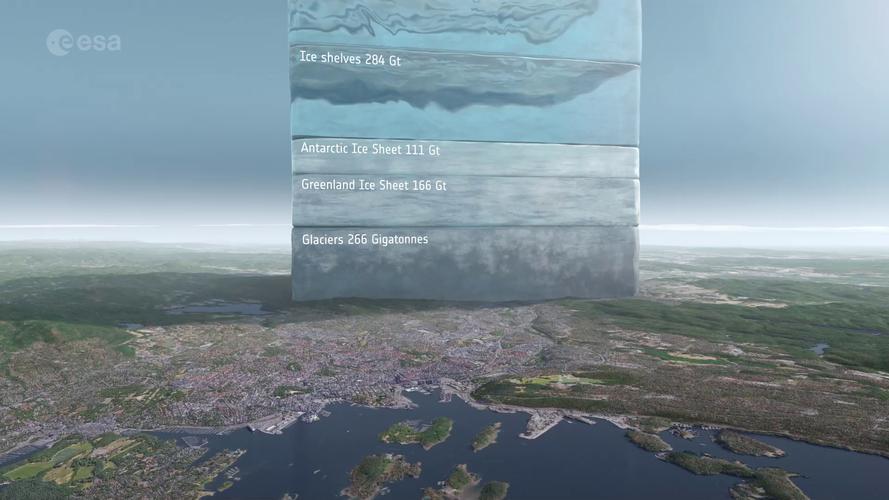 Video:
00:01:20
Video:
00:01:20
Satellites play a vital role in monitoring the rapid changes taking place in the Arctic. Tracking ice lost from the world’s glaciers, ice sheets and frozen land shows that Earth is losing ice at an accelerating rate.
Using information from ESA’s ERS, Envisat and CryoSat satellites as well as the Copernicus Sentinel-1 and Sentinel-2 missions, research led by Tom Slater of the University of Leeds, found that the rate at which Earth has lost ice has increased markedly within the past three decades. Currently, more than a trillion tonnes of ice is lost each year.
To put this into
